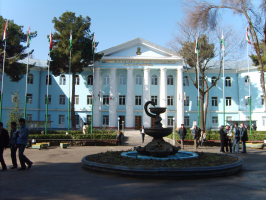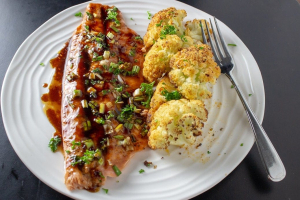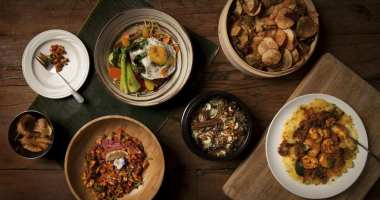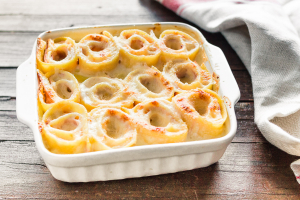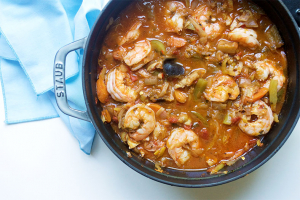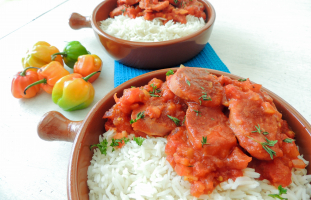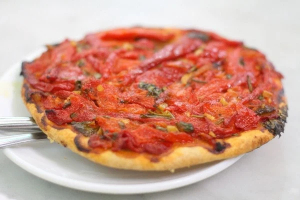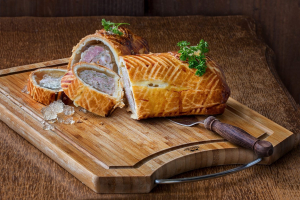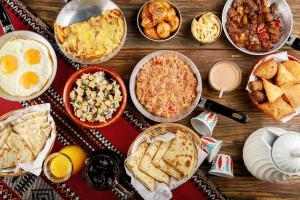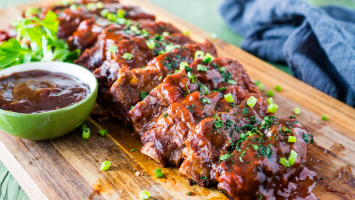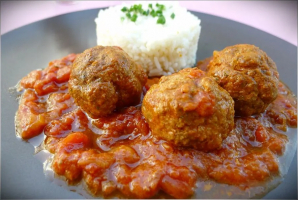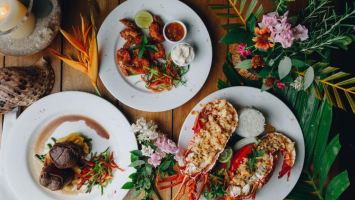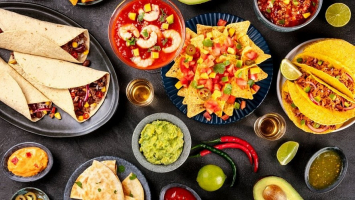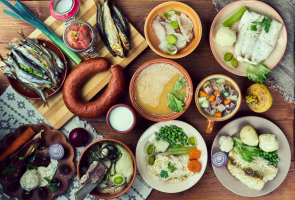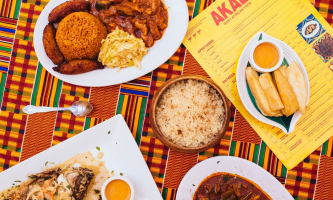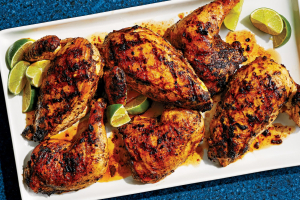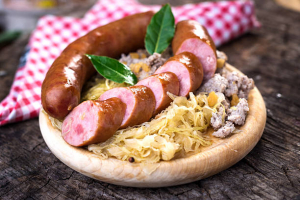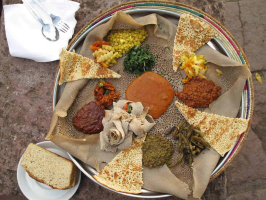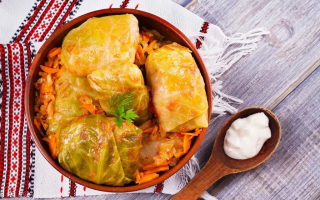Top 14 Best Foods in Tajikistan
This may come as a shock to you. Tajik cuisine is actually quite difficult to come by in Tajikistan if you are a first-time visitor. The food you will find in ... read more...Tajikistan is most likely from its neighbors. Uzbek and Kyrgyz cuisine, as well as Persian cuisine, are extremely popular. Now, let's get started with the top Tajik dishes, drum rolls please!
-
Although bread is not unique to Tajikistan, it is so important in Tajik cuisine that it has almost religious significance. A meal is incomplete without a piece of bread, and there are numerous myths surrounding this common food. For example, you should not use a knife, and putting it upside down will bring you bad luck.
Tajikistan's most popular bread is Tajik naan. In a tandoor oven, a flatbread made of wheat dough and yoghurt is baked. This bread is widely available in markets across Tajikistan, but it is not the only option.
In fact, bread is so important in Tajik cuisine that it has its own type for each occasion. Girdacha (the largest flatbread baked in a tandoor oven), fatir (a flaky flatbread cooked in oil), and kulcha are some examples (fluffy flatbread).
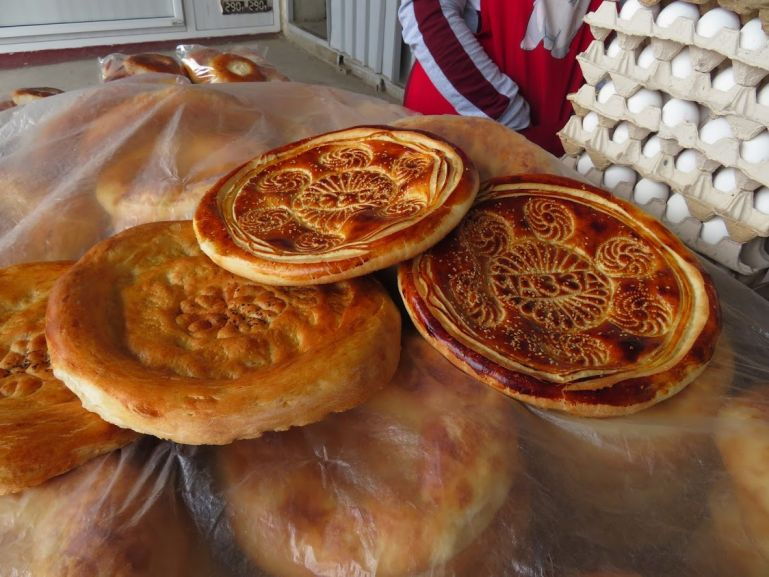
https://www.backpackadventures.org/tajik-food-in-tajikistan/ Source: Youtube.com -
Tajikistan's national dish is without a doubt qurutob. Its name already gives you an idea of what's in it. Qurut are salty cheese balls that are a popular snack in Central Asia. Ob is a word that means "water." As a result, the kurut is dissolved in water to make a yoghurt-like sauce, which is then poured over flaky fatir bread bits. Finally, fresh herbs and baked onions are added to the dish.
Because it's a simple, everyday dish, most versions don't contain meat, making it ideal for vegetarians. You may, however, come across some that include lamb. Fresh vegetables like tomatoes and carrots are among the other varieties.
Where to eat: This dish is easy to come by in Dushanbe, where you can find qurutob khonas that specialize in qurutob. It's a great lunch option that won't set you back more than a few dollars.
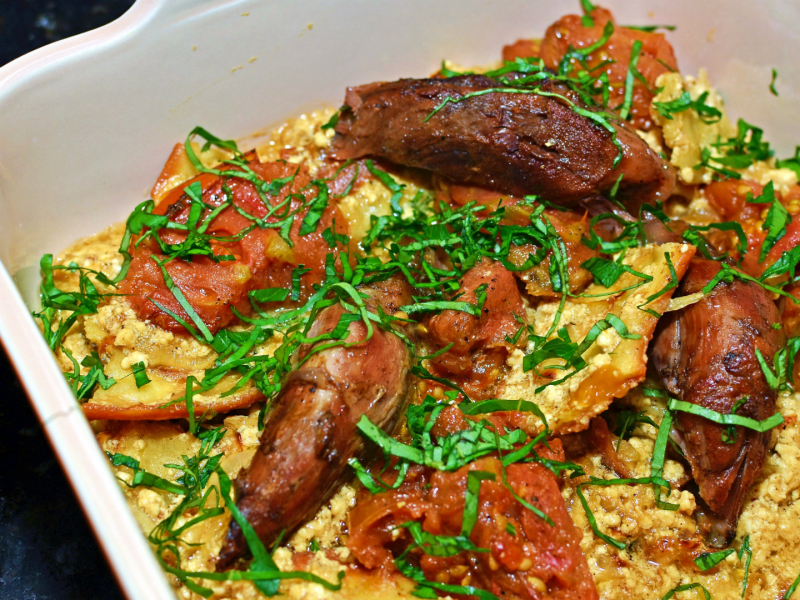
http://blog.ingredientmatcher.com/ Source: Youtube.com -
Soups are extremely popular in Tajikistan, and they are frequently so rich that they serve as a filling and satisfying lunch. In the country, people had several soups that were always delicious and full of fresh vegetables and herbs. In Tajikistan, ordering soup is almost always a good idea. Keep in mind that they are almost never vegetarian.
Mastoba is one of Tajikistan's most popular soups. A dish that is similar to Mastava, an Uzbek soup. Meat, vegetables, and rice are the basic ingredients. In Tajikistan, however, the soup is occasionally seasoned with local herbs and katyk (a fermented milk product).
Mastoba's traditional soup is made with meat, rice, and vegetables. It's usually made with seasoned chunks of beef or mutton browned with tomatoes, onions, garlic, carrots, sweet peppers, potatoes, spices, and rice, then simmered with water until the meat, rice, and vegetables are tender.
The soup, which is thick and filling, is traditionally served hot in an oval-shaped bowl known in Tajik as kasa, tavak, or pialah. It's typically served with a drizzle of katyk, a Tajik sour milk, and sprinklings of fresh chopped coriander and ground pepper on top.Where to eat: You can find this soup in most local restaurants. It is suggested to have this dish in Dushanbe's Chaikhona rohat.
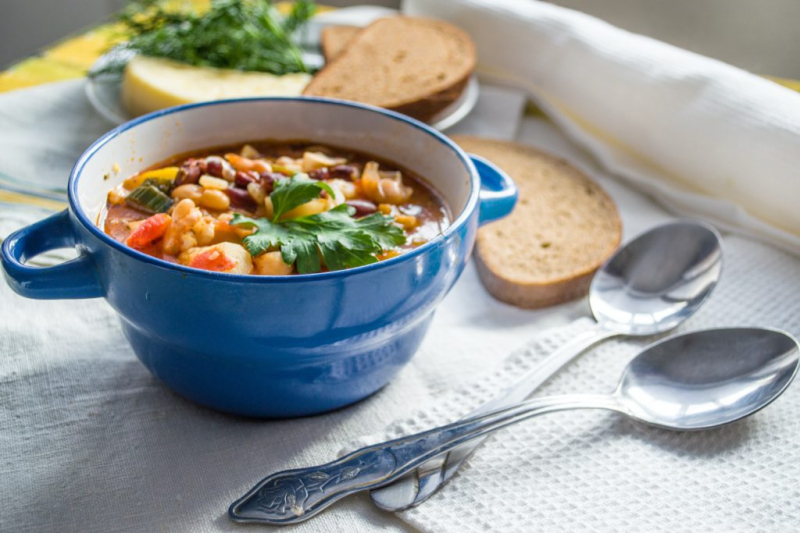
https://visatajikistan.com/ -
Tajikistan's national dish is qurutob, but plov is the most popular dish in the country, if not all of Central Asia. In a special kazan cauldron, chunks of meat are fried in oil and served with rice, onions, and carrots.
It's so well-known in the region that it's difficult to say where it comes from. Plov was declared part of Uzbekistan's and Tajikistan's national cultural heritage in 2015.
Penjikent is known throughout the country for having the best plov. Their plov is distinct in that they use yellow carrots grown locally rather than the more common orange carrot. Plov, on the other hand, is widely available throughout Tajikistan. It's a true feast when properly prepared.
Where to eat: Penjikent bazaar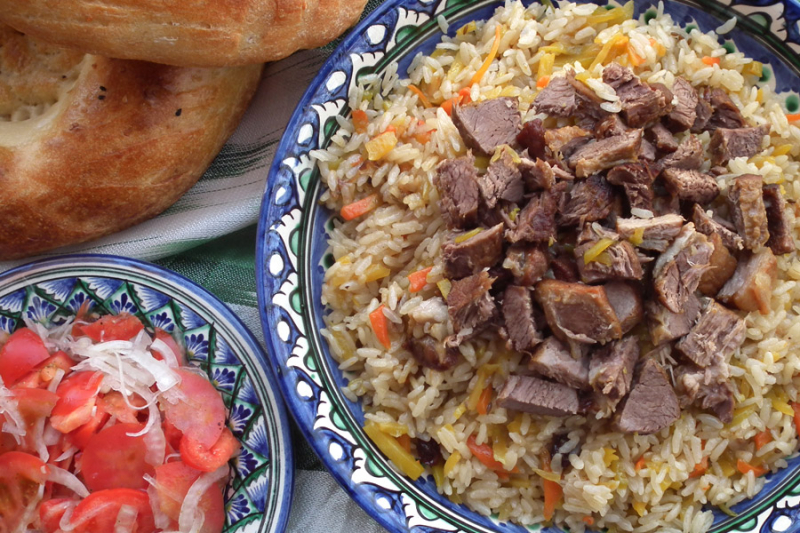
https://www.advantour.com/uzbekistan/uzbek-food/plov.htm 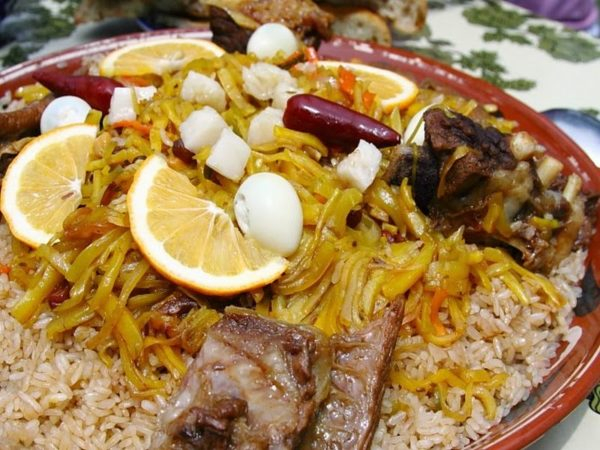
https://uzbegimtour.uz/ -
Kabob is considered a delicacy. If you're served kabob at a friend's house, know that you're being treated like royalty. Kabob is meat that has been stewed in a unique way to give it a unique flavor, especially in the Pamirs, where it is usually made from venison or yak meat. Onions, ghee or vegetable oil, various species, such as pepper, cumin, ground cilantro seeds, salt, and herbs, green onions, dill, and so on, are among the other ingredients.
The best kabob, according to Pamiris, is prepared outside, usually high in the mountains, where people go for a picnic with family or friends. The meat, as well as the bones, are chopped up by the chef. It's then seasoned with ground pepper and salt before being fried until golden brown in fat or oil at 350°F. Add the onion, cut into rounds, and fry for 7-10 minutes, stirring occasionally. Finally, water is added, and the deg is covered tightly and left to simmer until the meat is tender over a low heat.
The kabob is served on a large plate once it is ready. The meat juices are poured over it, and ground black pepper and chopped herbs are sprinkled on top. To accompany the delicious Pamir kabob, a vegetable salad and fresh bread are served.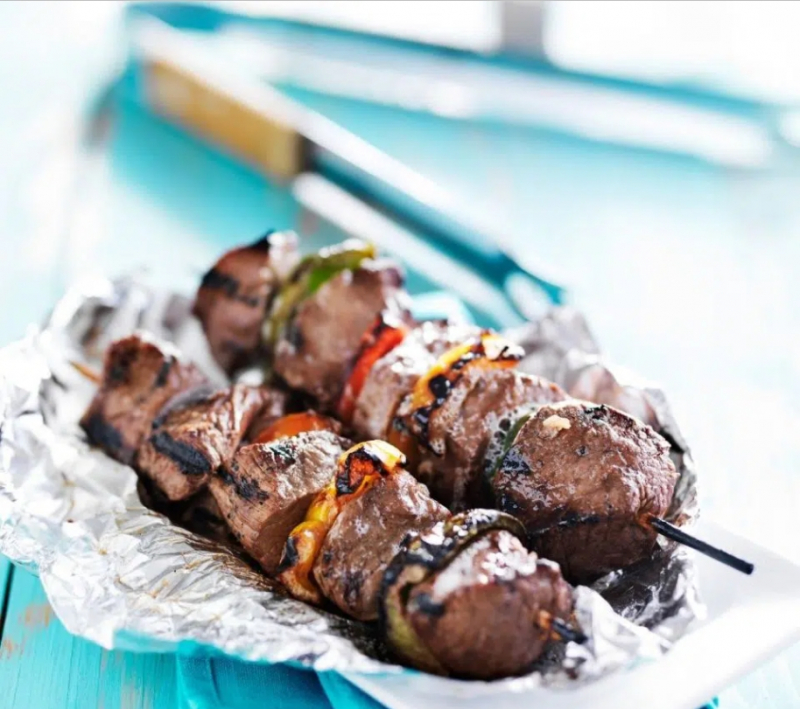
https://www.chefspencil.com/ 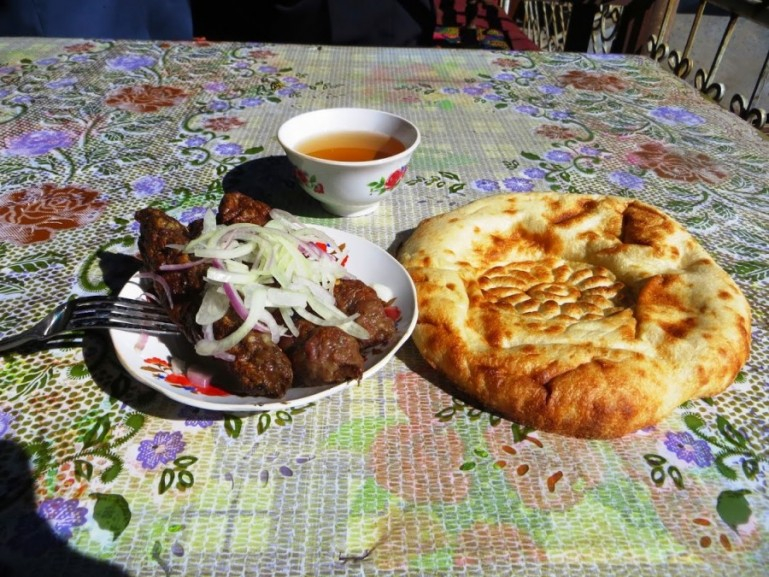
https://www.backpackadventures.org/ -
The savory pastries known as sambusa were one of my favorite snacks in Central Asia. Tajik Sambusas are similar to Uzbek Sambusas. If you've ever been to India, you'll notice how similar the samosa is.
In Uzbekistan, people mostly ate meat-filled samsas with potatoes on the side. But there wasn't much variety in the fillings beyond that. As a result, finding samsas filled with chickpeas in Tajikistan was a pleasant surprise.
The nahud sambusa filled with chickpeas turns out to be a Tajik specialty. Unfortunately, they are not widely available, but if you come across them in a market, give them a try.Where to eat: look out for the tandoor ovens at markets and ask if they have nahud sambusa.
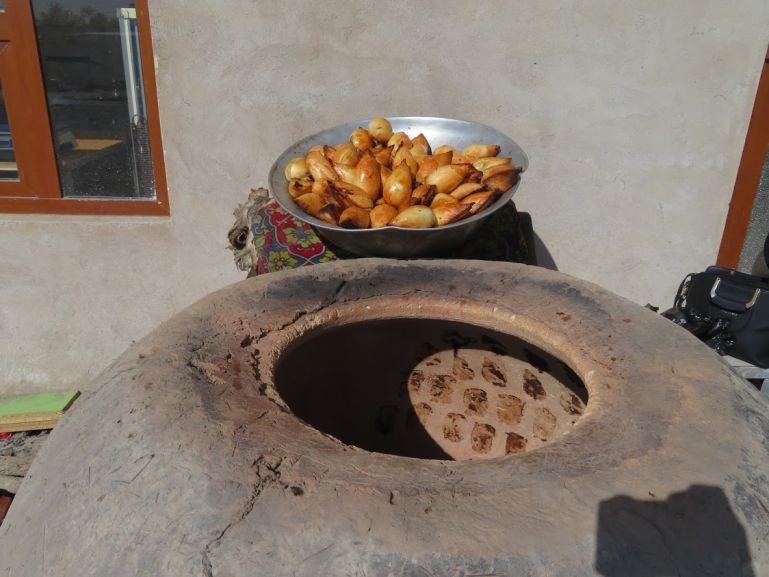
https://www.backpackadventures.org/ -
Mantu is one of Tajikistan's most popular dishes. These are meat-filled dumplings that are typically served with sour cream. While people enjoy mantu because it is delicious and simple to prepare, the chef finds it challenging.
It's a lengthy and exhausting process. The dough is made first, then rolled out very thinly. The meat is then cut into small rectangles and stuffed with a seasoned beef, lamb, or chicken mixture.
After that, each one is folded into a rose-like design. They're all placed in the mantupaz, or mantu-maker, which is a large saucepan placed on top of a smaller pan filled with water and used to steam the mantu.
The entire process takes a lot of time and effort, so at least two chefs are required. Mantu, on the other hand, is a dish that everyone enjoys, so it's worth the effort.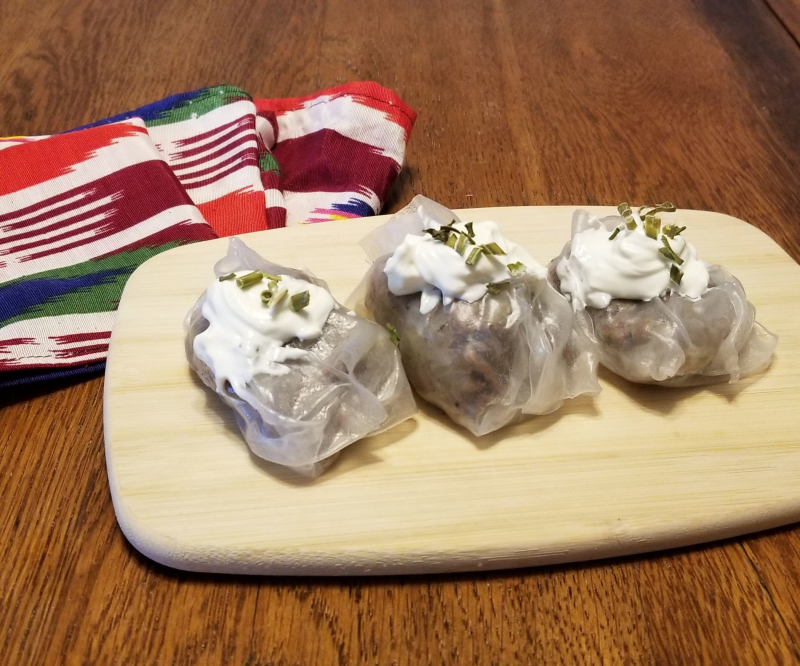
https://www.instructables.com/Making-Mantu-Tajik-Dumplings 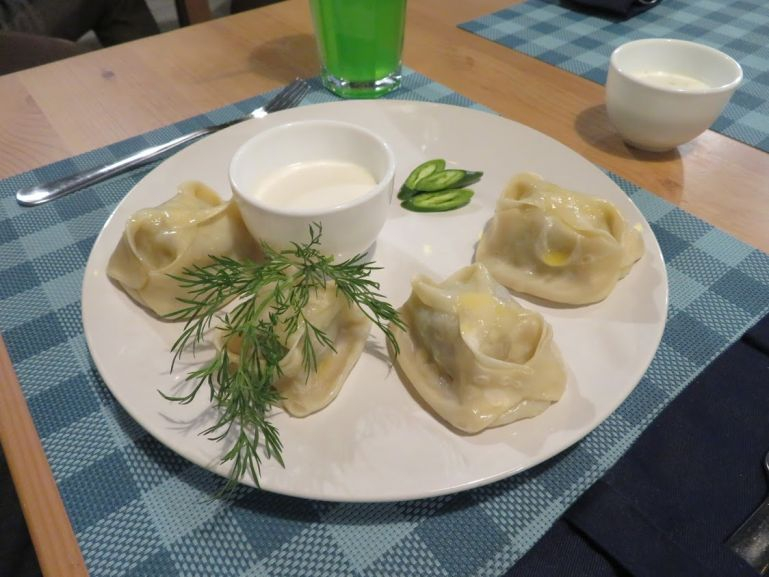
https://www.backpackadventures.org/ -
Shurbo is a light soup that comes with bread and herbs. There are many different types of shurbo, but khom-shurbo is the most popular among Tajiks. This translates to raw-shurbo, but it's only a name. Khom-shurbo is cooked in a deg. for about two hours. Even though it's just a soup, it's quite filling, and one serving can keep you full for the entire day.
Butter, onions, carrots, potatoes, and occasionally chunks of bell peppers, tomatoes, lamb or beef, and salt are the main ingredients. All of the ingredients are added in that order, and the soup is allowed to simmer on a low heat until it is thoroughly cooked.
Herbs are sprinkled on top when it's done. The meat and potatoes are sometimes served separately from the soup, which is served in traditional piyola bowls.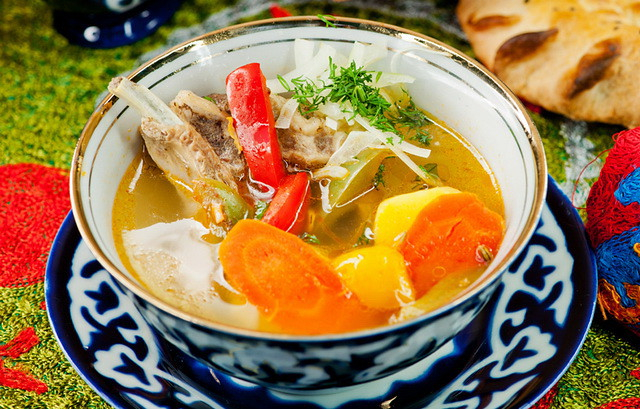
https://paramountjourney.com/ Source: Youtube.com -
The climate in Tajikistan's east is quite harsh. Temperatures can drop to -50°C in the winter. Locals, who have lived there for centuries, developed dishes to keep them warm and healthy in response. Shirchoy is a tea that has been used to keep locals warm for many years. It's a simple recipe, but the original shirchoy can only be made by a true Pamiri. So, what exactly is it? And how can a simple tea keep you warm in the winter?
Shirchoy is a salted milk tea that is traditionally served with bread and butter. In fact, bread is an integral part of the shirchoy tradition. Water is first brought to a boil, then black tea is added. Salt is then added to the boiling water, followed by milk. Some people also add nuts.
The tea is boiled for a long time, until it thickens to the consistency of regular tea. Shirchoy is served with a piece of butter and non, the local bread, in a piyola. Some people even break the bread into small pieces, toss it into the tea, and scoop it up with a spoon.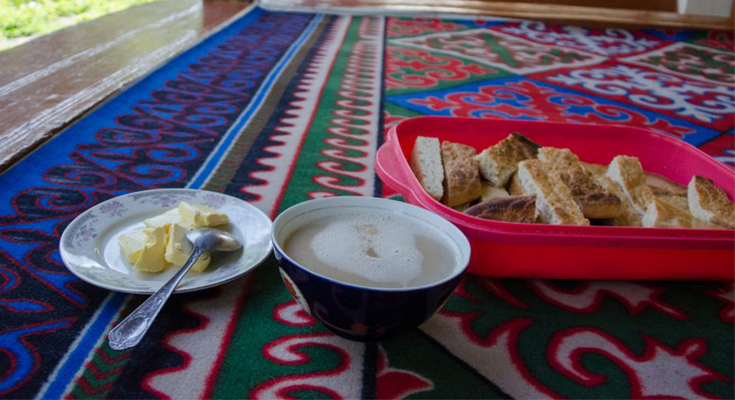
https://www.dookinternational.com/ Source: Youtube.com -
Another popular dish is sambusa. This triangle-shaped puff pastry dish with meat, herbs, or pumpkin has become a favorite dish in every Tajik family's dastarkhan (the place where food is served). "While eating one sambusa, the hand involuntarily reaches for the second," locals say.
The dough is the most important aspect of a successful sambusa. Each chef has their own method, but the majority agree that the dough should be flaky in order for the baked result to be crisp and light. A pack of butter or ghee is ground with flour, then added to water, salt, and eggs to make a lamb sambusa. It's kneaded until the dough is extremely tough, then refrigerated for an hour. Meanwhile, the mince is cooked with a couple of large chopped onions before being seasoned with pepper, salt, and cumin.
The chilled dough is rolled out to a thickness of a millimeter, oiled, and cut into circles. The minced meat is then spooned into each circle. The edges are molded into a triangle or crescent shape and baked at 160 degrees for 20 minutes. The sambusa is also ready.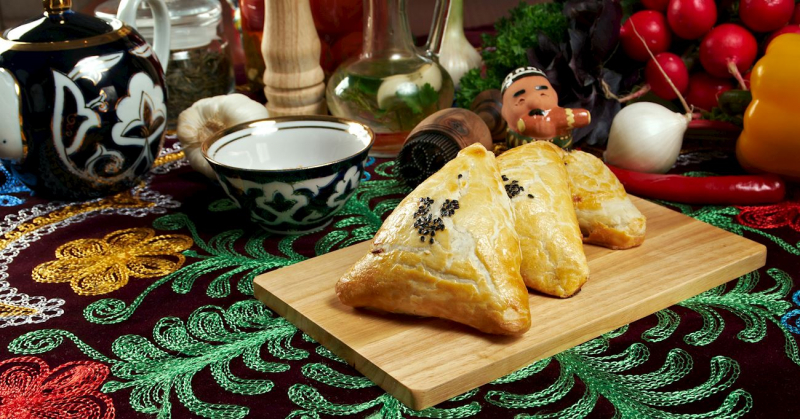
https://www.tasteatlas.com/sambusa-baraki 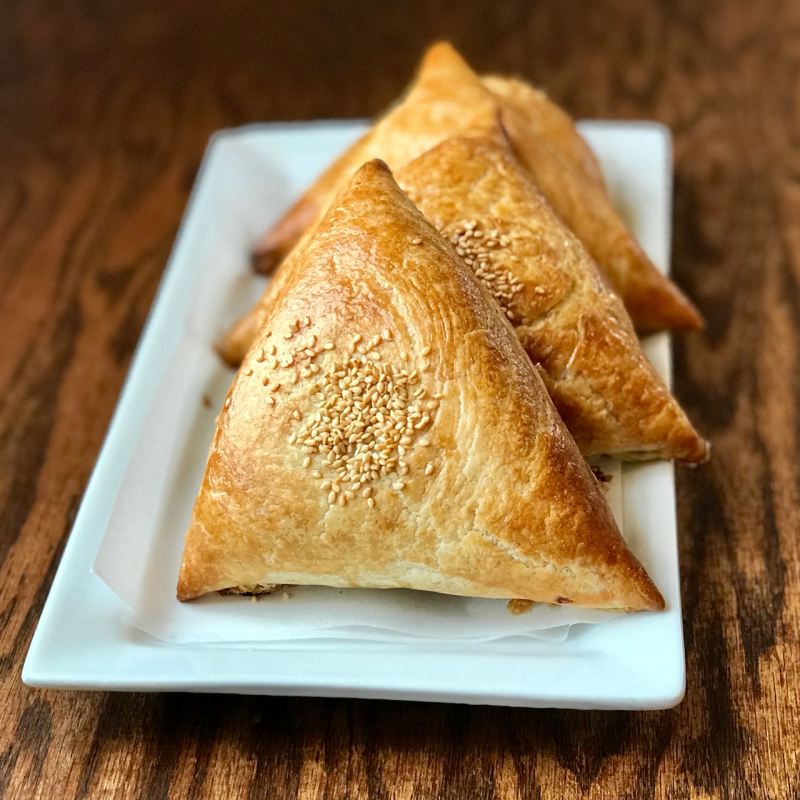
https://www.livinthepielife.com/ -
Shakarob translates to "sweet water." However, it does not taste sweet and does not live up to its name. Shakarob and qurutob are similar in that they are both served in a tabaq and contain some of the same ingredients, such as onions, tomato, fatir, greens, pepper, sour cream, vegetable oil, and salt. While shakarob does not contain meat, cottage cheese, or a few other ingredients, many people confuse the two dishes.
Shakorb is characterized by its lightness and ability to be consumed at any time. Even the preparation of shakarob is simple: fatir is baked and placed on a tabaq, then a mixture of ingredients is added, and that's all there is to it. Shakrarob is the dish of choice for those who don't want a heavy dinner. It's simple to make and will help you get a good night's sleep.
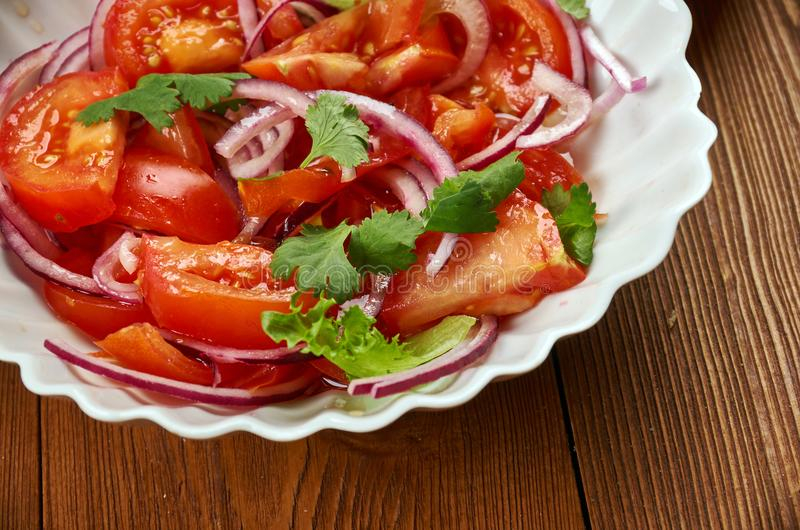
https://www.dreamstime.com/ -
Lagman is a spicy, delicious soup that can be found in Central Asian cuisines. The Tajik version of lagman, on the other hand, is prepared differently. To begin, a tough dough is made with flour, water, and salt and set aside in a cool place for 30-40 minutes.
The dough is then rolled into a sheet and cut into long, thick noodles, which are then dipped in salted water. The sauce is then made. Potatoes, carrots, bell peppers, fresh cabbage, onions, and fresh tomatoes are diced, and beef is cut into cubes. All of this is then combined with garlic and herbs and sautéed in hot fat.
After the vegetables have softened, a little water, salt, and pepper are poured over them, and they are left to simmer for 30-40 minutes on a low heat. The sauce is poured over the boiled noodles, which are then sprinkled with herbs and sour milk before serving.
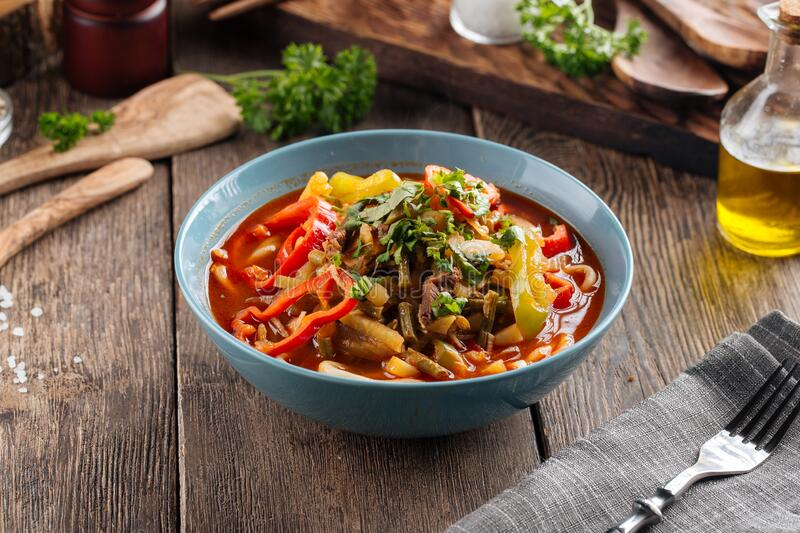
https://www.dreamstime.com/ 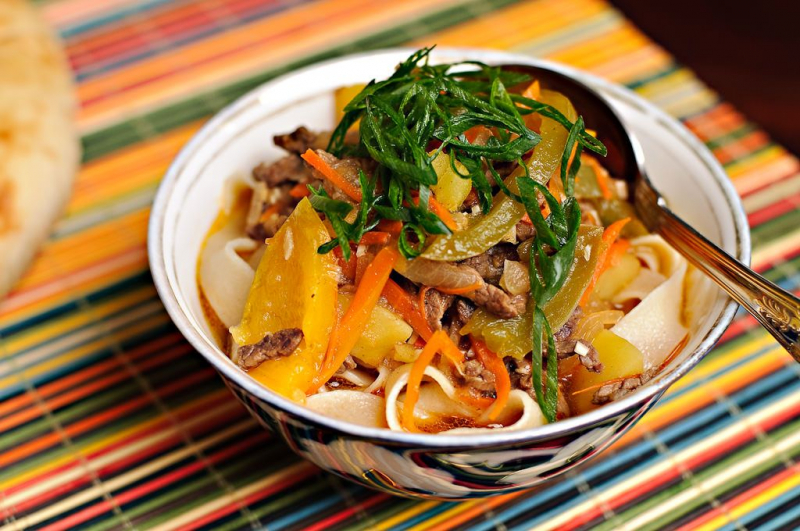
https://www.pinterest.com/ -
Tajikistan has provided us with yet another delectable dish. Damlama is the name for this. It's a type of soup that can be served on a plate as well. Isn't it fascinating? Damlama is more of a stew than a soup because it contains so many ingredients. Damlama is a time-consuming process that requires patience.
The meat (usually beef) and vegetables are first laid out in a deg oven (a thick-walled dish). You can also add eggplant, zucchini, and whole garlic cloves. Large cabbage leaves are used to completely cover the mixture, but a clean cloth or foil can also be used.
The deg is then covered tightly with a heavy lid and placed over a low heat to simmer in its own juices (no water is added). Your damlama will be ready in two hours, though many local chefs recommend simmering it for 5-7 hours over very low heat. The finished damlama is placed in a dish and the juices are poured over it.
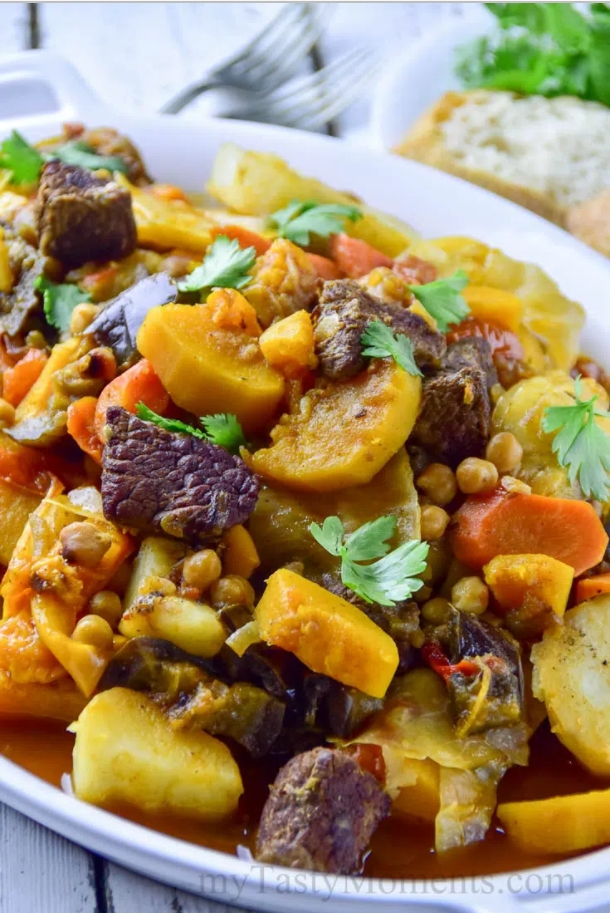
Credit: mytastymoments -
Return with me to the Pamir Mountains, where shirchoy calls home and where the weather is bitterly cold. The cuisine of this region was shaped by what was available, and noshkhukhpa is one of the most popular. Yes, it is a difficult word to say. But believe me when I say it's delicious. Dried apricots are used to make this dish, which is more like a sweet soup.
Noshkhukhpa, according to Pamiris, helps to prevent colds, especially in the winter. The process for making this soup is simple: dried apricots are thrown into water and brought to a boil. The flour is then added, and the mixture is cooked until it thickens and the dried apricots are almost completely dissolved. As a result, the soup has a sweet and sour flavor.
Children adore it so much that they will lie about having the flu in order to get their mothers to make noshkhukhpa.
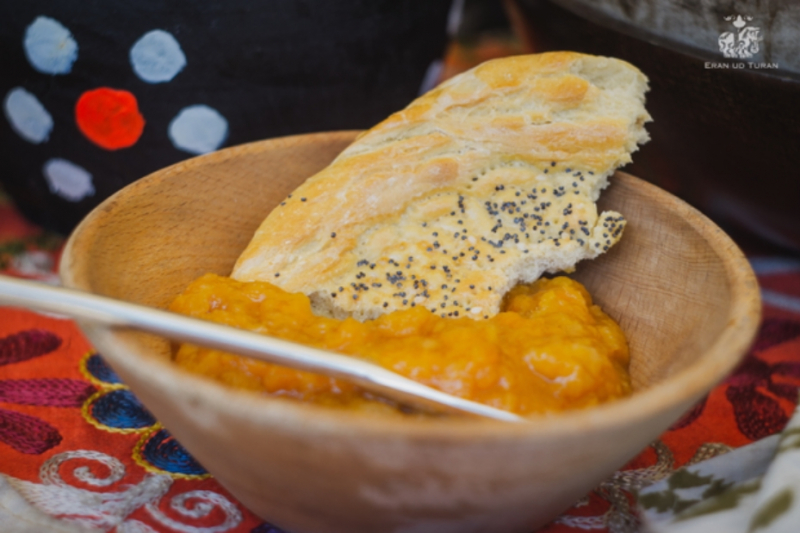
Source: Eran ud Turan 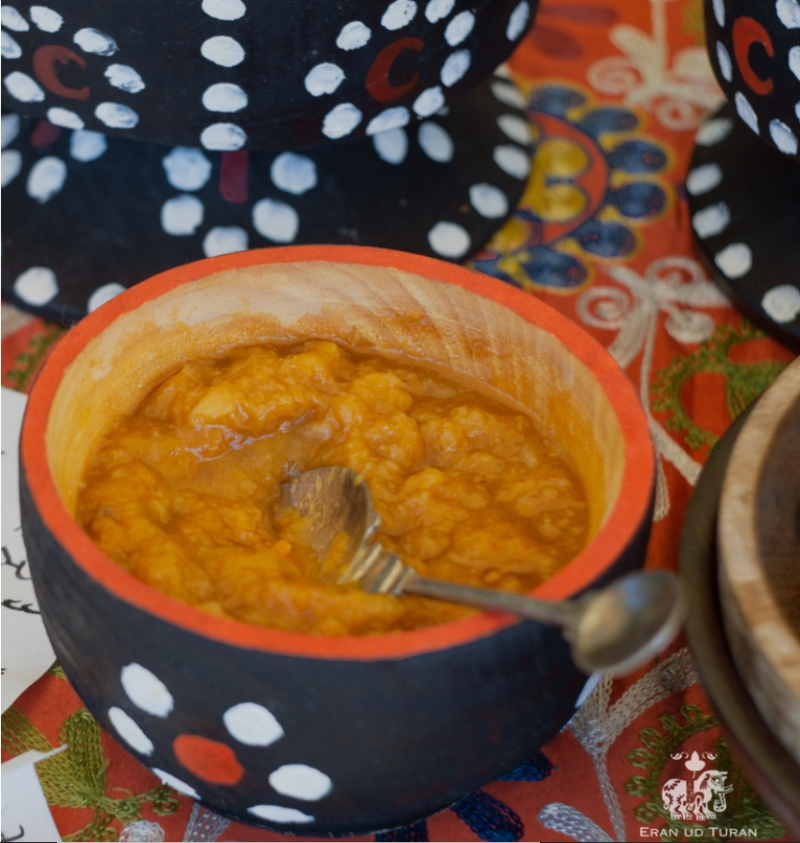
Source: Eran ud Turan



